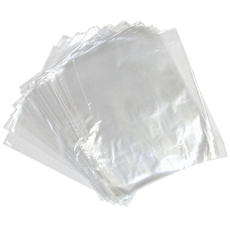Biodegradable bags have been used in various industries and applications as part of sustainability efforts. While there have been some success stories, it’s important to note that the effectiveness of biodegradable bags can vary depending on factors such as material choice, disposal methods, and local infrastructure. Here are a few success stories showcasing the positive impact of biodegradable bags in specific contexts:
- Agricultural Mulch Films: Biodegradable mulch films made from materials like polybutylene succinate (PBS) have been adopted in agriculture to reduce plastic pollution and environmental impact. These films are used to cover soil and promote crop growth while biodegrading naturally over time. Success stories include farms in regions where these films have improved crop yields and reduced the need for post-harvest plastic removal.
- Food Service Industry: Many restaurants and food service establishments have switched to biodegradable food packaging, including bags, containers, and utensils, to reduce the environmental footprint of single-use plastics. Success stories involve businesses that have successfully implemented these biodegradable alternatives and communicated their sustainability initiatives to customers, leading to improved brand reputation and customer loyalty.
- Retail and Grocery Stores: Some retail chains and grocery stores have introduced biodegradable shopping bags as an alternative to traditional plastic bags. Successes have been seen in areas where these bags are actively promoted, and customers are educated about their responsible disposal and potential composting benefits.
- Events and Festivals: Events and festivals have started using biodegradable bags for trash collection and disposal. By providing attendees with biodegradable bags and clearly marked composting bins, organizers have reduced the environmental impact of large gatherings and reduced the amount of waste sent to landfills.
- Waste Diversion Programs: Municipalities in some regions have incorporated biodegradable bags into their waste diversion programs. By providing residents with biodegradable bags for organic waste collection, these programs have increased composting rates and reduced the amount of organic material in landfills.
- Marine and Beach Cleanup Initiatives: Biodegradable bags are sometimes used in beach cleanup events to collect litter. These bags can help minimize the environmental impact of cleanup efforts and reduce the amount of plastic waste reaching the ocean.
- Hospital and Healthcare Settings: Biodegradable medical waste bags are used in healthcare facilities for the disposal of biohazardous materials. These bags can provide a more sustainable alternative to traditional plastic bags for medical waste containment.
While these success stories demonstrate the potential benefits of using biodegradable bags in specific applications, it’s essential to recognize that their effectiveness relies on proper disposal, infrastructure for composting or processing, and responsible consumer behavior. Biodegradable bags should be part of a broader strategy to reduce single-use plastics and minimize environmental impact. Additionally, continuous research and development are essential to improve the performance and sustainability of biodegradable bag materials.














